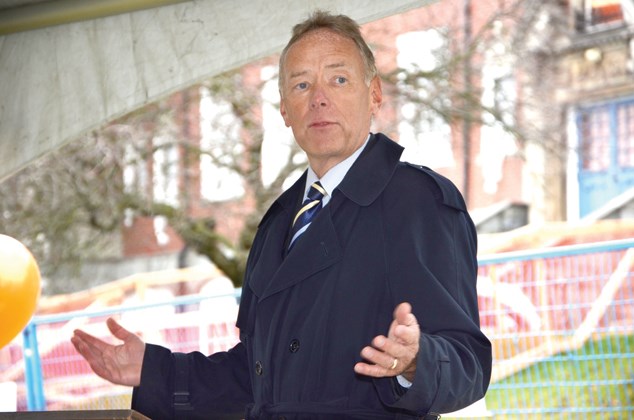Questions are being raised about how the North Vancouver school district recruits and pays its top senior staff after it was recently revealed superintendent John Lewis officially "retired" at the beginning of September, only to be immediately hired back in the same job as a contract employee.
The situation means Lewis - who earned more than $246,000 in salary and benefits last year and who often ranks second or third in the list of highest-paid school district employees across the province - is now eligible to collect both a full pension and a salary comparable to what he previously earned.
The practice - known as "double dipping" - is one that has been questioned when practised by federal civil servants and senior municipal staff.
Bill Bell, a North Vancouver blogger, said Lewis' position raises similar issues.
"He's getting his pension fund and he's getting paid," said Bell. "When a taxpayer looks at that, it is wrong. You don't retire people then hire them back. It's just bad policy."
Bell blames the former school board for that, noting while the situation was discussed by trustees last spring and became official in September, it was only alluded to in a vaguely worded press release issued one day before the new school board was sworn in.
Barry Forward, the new chair of the North Vancouver Board of Education, acknowledged the arrangement to hire Lewis back after his official retirement is one that will be looked at carefully by the new board. "I am not a fan of double dipping, personally," he said. "Taxpayers are demanding high accountability from its public officials. There's only one taxpayer."
Lewis, who has worked in the North Vancouver School District for 35 years, said the decision to officially retire was a personal one, but also one that was influenced by his role as superintendent. "I'm always giving that heavy consideration," he said. Lewis said maximum contributions have already been made to his teachers pension plan. But there have also been a number of recent changes in senior management positions at the school board leaving him as the only employee who's been there longer than five years.
Lewis said staying on allows a new board of education to hire a deputy superintendent who can gradually take over. He added he could have probably gone to work at other Metro Vancouver school districts but, "This was my preferred option."
Lewis said under the new arrangement, he is still employed directly by the school district, but the public body is no longer required to make pension contributions on his behalf. This way, Lewis said he's saving the school district money.
According to public reports, last year the school district paid more than $30,000 towards Lewis' pension benefits.
Lewis refused to say how much he is being paid under the new contract, except to say it's similar to the salary he was earning before. He also refused to say if he has started drawing his pension.
But he added that since mandatory retirement was outlawed, more people who are eligible for a pension are continuing to work.
"It's not an uncommon situation," he said. "There's mutual benefit." Jordan Bateman, director of the Canadian Taxpayers Federation, agreed the practice is becoming more common - especially among former public servants where pensions are generally "far and away better than anything you could get in the private sector" and can be drawn at an earlier age.
Pensions are no longer just considered an income for those who have retired, he said. "Now it's become yet another income source. This is where people become uncomfortable about double dipping." Bateman added the practice often indicates a failure of proper succession planning. Forward said that's something the new board will be examining more closely in the new year.
So far there is no timeline attached to a plan to recruit someone who will eventually replace Lewis.



